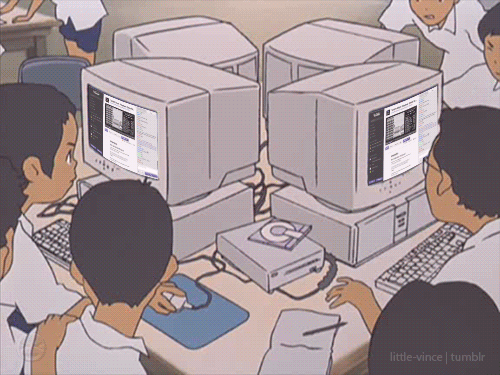Text
the worse climate disaster gets, the more you’ll see closet eugenicists start to advocate for letting people die. you need to be prepared to combat the ideology wherever you see it, because it’s only going to get worse and worse Read everything having to do with climate disaster critically. If the central argument underlying what’s being said is that the death of disabled and/or racialized people is inevitable, natural, or desirable– that’s a fascist.
they might be appear to be a garden variety republican or liberal or even a leftist at first, but know that if that argument is being made, their underlying ideology is one of supremacism, and given additional climate stress, they will become more blatant about it.
107K notes
·
View notes
Text
If the "infertility epidemic" was the first round of fire in the pronatal campaign of the '80s, then the "birth dearth" was the second. At least the leaders of this campaign were more honest: they denounced liberated women for choosing to have fewer of no children. They didn't pretend that they were just neutrally reporting statistics; they proudly admitted that they were seeking to manipulate female behavior. "Most of this small book is a speculation and provocation," Ben Wattenberg freely concedes in his 1987 work, The Birth Dearth. "Will public attitudes change soon, thereby changing fertility behavior?" he asks. "I hope so. It is the root reason for writing this book."
Instead of hounding women into the maternity ward with now-or-never threats, the birth dearth theorists tried appealing to society's baser instincts—xenophobia, militarism, and bigotry, to name a few. If white educated middle-class women don't start reproducing, the birth-dearth men warned, paupers, fools, and foreigners would—and America would soon be out of business. Harvard psychologist Richard Herrnstein predicted that the genius pool would shrink by nearly 60 percent and the population with IQs under seventy would swell by a comparable amount, because the "brighter" women were neglecting their reproductive duties to chase after college degrees and careers—and insisting on using birth control. "Sex comes first, the pains and costs of pregnancy and motherhood later," he harumphed. If present trends continue, he grimly advised, "it could swamp the effects of anything else we may do about our economic standing in the world." The documentation he offered for this trend? Casual comments from some young students at Harvard who seemed "anxious" about having children, grumblings from some friends who wanted more grandchildren, and dialogue from movies like Baby Boom and Three Men and a Baby.
The birth dearth's creator and chief cheerleader was Ben Wattenberg, a syndicated columnist and senior fellow at the American Enterprise Institute, who first introduced the birth dearth threat in 1986 in the conservative journal Public Opinion—and tirelessly promoted it in an endless round of speeches, radio talks, television appearances, and his own newspaper column.
His inflammatory tactics constituted a notable departure from the levelheaded approach he had advocated a decade earlier in his book The Real America, in which he chided population-boom theorists for spreading "souped-up scare rhetoric" and "alarmist fiction." The fertility rate, he said, was actually in slow decline, which he saw then as a "quite salutary" trend, promising more jobs and a higher living standard. The birth dearth, he enthused then, "may well prove to be the single most important agent of a massive expansion and a massive economic upgrading" for the middle class.
Just ten years later, the fifty-three-year-old father of four was sounding all the alarms about this "scary" trend. "Will the world backslide?" he gasped in The Birth Dearth. "Could the Third World culture become dominant?" According to Wattenberg's treatise—subtitled "What Happens When People in Free Countries Don't Have Enough Babies"—the United States would lose its world power status, millions would be put out of work, multiplying minorities would create "ugly turbulence," smaller tax bases would diminish the military's nuclear weapons stockpiles, and a shrinking army would not be able “to deter potential Soviet expansionism.”
When Wattenberg got around to assigning blame, the women's movement served as the prime scapegoat. For generating what he now characterized as a steep drop in the birthrate to "below replacement level," he faulted women's interest in postponing marriage and motherhood, women's desire for advancing their education and careers, women's insistence on the legalization of abortion, and "women's liberation" in general. To solve the problem, he lectures, women should be urged to put their careers off until after they have babies. Nevertheles, he actually maintains, "I believe that The Birth Dearth sets out a substantially pro-feminist view."
Wattenberg's birth dearth slogan was quickly adopted by New Right leaders, conservative social theorists, and presidential candidates, who began alluding in ominous—and racist—tones to "cultural suicide" and "genetic suicide." This threat became the subject of a plank in the political platforms of both Jack Kemp and Pat Robertson, who were also quick to link the fall of the birthrate with the rise in women's rights. Allan Carlson, president of the conservative Rockford Institute, proposed that the best way to cure birth dearth was to get rid of the Equal Pay Act and federal laws banning sex discrimination in employment. At a 1985 American Enterprise Institute conference, Edward Luttwack went even further: he proposed that American policy makers might consider reactivating the pronatal initiatives of Vichy France; that Nazi-collaborationist government's attack on abortion and promotion of total motherhood might have valuable application on today's recalcitrant women. And at a seminar sponsored by Stanford University's Hoover Institution, panelists deplored "the independence of women" for lowering the birthrate and charged that women who refused to have many children lacked "values."
These men were as anxious to stop single black women from procreating as they were for married white women to start. The rate of illegitimate births to black women, especially black teenage girls, was reaching "epidemic" proportions, conservative social scientists intoned repeatedly in speeches and press interviews. The pronatalists' use of the disease metaphor is unintentionally revealing: they considered it an "epidemic" when white women didn't reproduce or when black women did. In the case of black women, their claims were simply wrong. Illegitimate births to both black women and black teenagers were actually declining in the '80s; the only increase in out-of-wedlock births was among white women.
-Susan Faludi, Backlash: the Undeclared War Against American Women
35 notes
·
View notes
Text

Willow Ptarmigan (Lagopus lagopus), in transitional plumage, family Phasianidae, Alaska
photograph by Kristina Ellis
41K notes
·
View notes
Text
















AFRIQUE, JE TE PLUMERAI // AFRICA, I WILL FLEECE YOU (1992) dir. JEAN-MARIE TENO
9K notes
·
View notes
Photo


In 2005, a group of artists in Italy built a giant 200-foot-long plushie rabbit in the countryside, and just left it there. It’s been there ever since.
(Source)
375K notes
·
View notes
Note
i think artists not wanting our work to be fed to ai without our permission is intrinsic reason enough why it shouldn't happen
my political perspective: what artists "want" is completely immaterial to IP legislation, which is & always has been founded on the 'wants' of corporate rightsholders who exploit barriers to entry and monopolistic distribution practices to demand ownership of artist's works upon which they can establish new and ever more garish practices of rentseeking
my personal perspective: to hell with what artists give permisison to be done with their work. you are free to criticize, to rail against, to disparage uses of your work you think are wrong, or facile -- just as cervantes excoriated shoddy third-party sequels in the second part of don quixote -- but if you wish to take preventative measures, to enforce your disapproval upon potential remixers and reusers, i think your sophomoric preciousness about your work makes you an enemy of everything i value about art and culture. you are fighting for a world without cross, without the low end theory, without garfield minus garfield or lasagna cat, without centos or cutups or blackout poetry, without video game modding, without plunderphonics or youtube poop or collage. anne rice's world, a world immeasurably poorer with a dead culture pinned to a board and preserved by immersion in the logics of capital
3K notes
·
View notes
Text
"when the friend who always cancels starts soft launching a headache" wow! i hope you specifically are maximally inconvenienced by someone else's illness today
15K notes
·
View notes
Text
Anti egg discourse is just another facet of the "trannies are coming to trans your kids" rhetoric.
3K notes
·
View notes
Text
it's so wild when your parent changes when you become an adult. my dad is very cordial and non confrontational - he regularly helps me with adult stuff like changing the oil or providing insurance tips. he's always smiling when i call him on video and providing jokes when i complain about college
when i was a kid, i would have to tiptoe around his anger issues often, sometimes running quietly past his work table until he got his own place completely separate from our family, locked away for days. every so often he would start screaming in the car and trying to hit me or my brother for talking too loud while my mom attempted to calm him down as he swerved on the road. and now he, smiling, helps me with car insurance.
like oh, this is just who you are when you have power over someone, and this is who you are when you dont have power over someone. no wonder you can have a normal life, friends, work while scaring the shit out of your kids and wife. i see it now. i see why no one would have believed me. that, i think, is one of the core fears of trauma - seeing the outside of it from the perspective of other adults that brushed you aside, and understanding. of course, that understanding gives the opposite of solace; it just gives you more grief with nowhere for it to go
20K notes
·
View notes
Text

Little blue heron By: Theodore Cross From: Natural History Magazine 1989
2K notes
·
View notes
Text
feminism shouldn’t be about patting housewives on the back for making that decision but it should be about making sure that if that housewife’s husband starts cheating or slapping her around that she can be taken seriously, get a divorce, not have everyone in her life turn against her, not force her to send the children back to his house every other weekend where he starves them just to send her a message, and not be left in financial ruin
15K notes
·
View notes
Text
*sees your dead body * eewww lol *remembers we are mutuals* well idk :-) its cute i guess
88K notes
·
View notes











